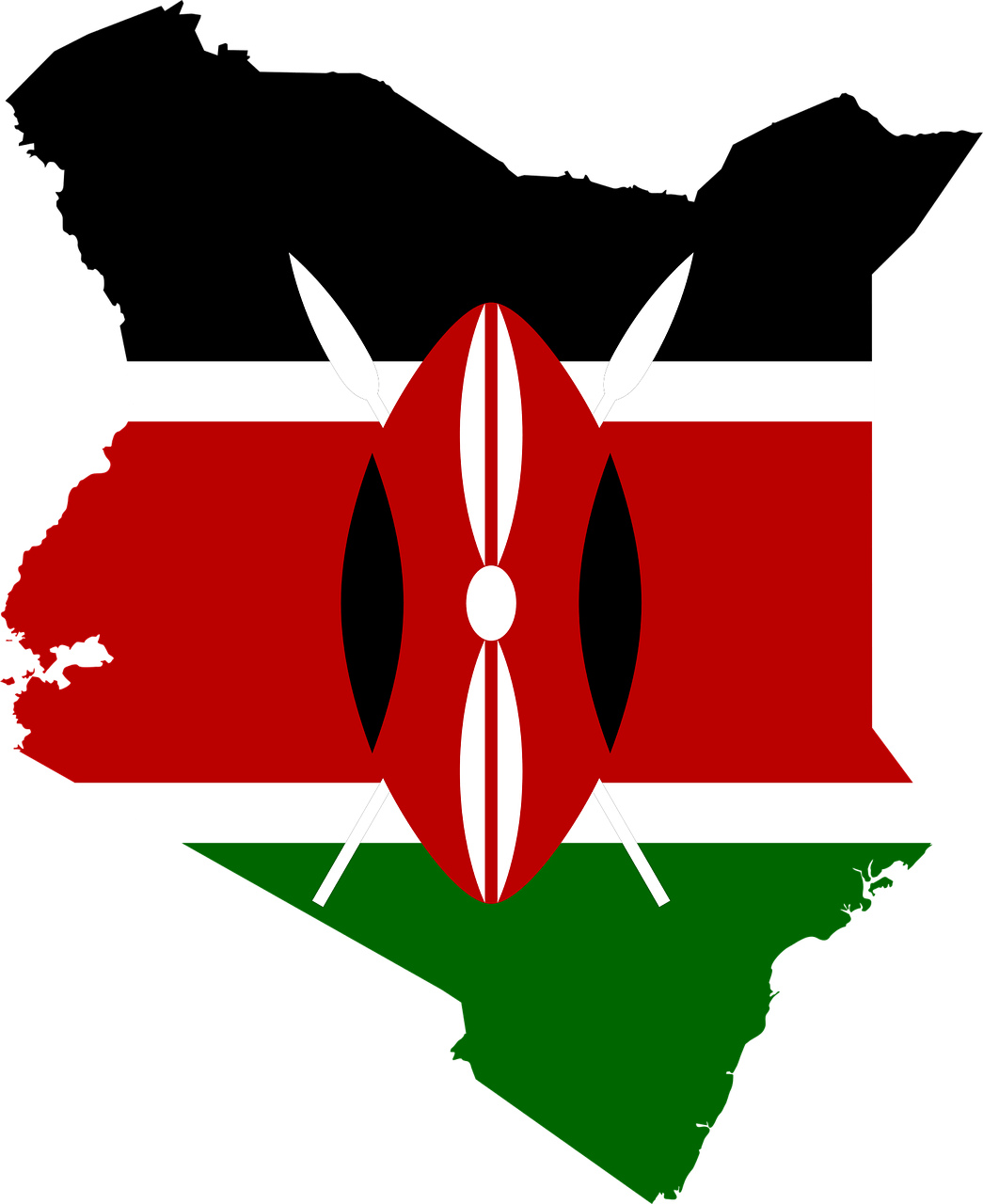Kenya opens borders to all Africans with business agenda

On 30 May this year, President William Ruto of Kenya announced a decision that unleashed an avalanche of reactions. Visa restrictions and requirements, border issues and continental unity have been topics of much interest to almost all nations, for years. Certain countries worry less about some of these requirements since the whole world seems to be open to them, and Western wealthy capitalist countries are at the top of the list. The imbalanced traveling possibilities between Africa and the West (mainly Europe and North America) has resulted in one of the tragedies that befell Africa and still lingers: millions of people of almost all age groups do not hesitate to take to the sea in a desperate attempt to reach the shores of the “developed” nations, in search of greener pastures. The opposite applies to many Europeans and North Americans who travel to Africa since no visa is required from them or they simply “pick it up” on arrival. So, President Ruto’s decision to scrap visa fees for Africans traveling to Kenya for business purposes was a very welcome decision for most Africans and all those who have Africa’s progress at heart.
This is not the first time that Kenya has taken a step in that direction. In November 2017, President Uhuru Kenyatta made a similar decision when he stated that all Africans traveling to Kenya would be granted visas on arrival. It was an effort to boost trade and business relations between Kenya and all African nations. He cited the following as reasons behind his decision: the free movement of people on the African continent is a cornerstone of Pan-African brotherhood and fraternity, and traveling freely makes Africans appreciate their diversity. Then this May, when as part of his remarks during the African private sector dialogue conference on the African Continental Free Trade Area (AfCFTA) in Nairobi, President Ruto exempted all Africans from the visa requirement and many will simply wonder if Kenyan leaders’ inclination towards visa free movements on the continent is not related to the Pan-African verve of their first president, Jomo Kenyatta, who with Mwalimu Julius Nyerere of Tanzania and Kwame Nkrumah of Ghana spearheaded the move for a united Africa.
In a truly diplomatic style and with grand humility the Kenyan president apologized to African officials who suffered the discomfort of visa regulations during their trips to his country to attend a forum on African Continental Free Trade Area (AfCFTA) in Nairobi: “Trade Minister Moses Kuria has informed me that somehow some of our officials made you pay for visas to come home and asked me to apologize, which I do. When one comes home, they don’t pay”. He later boldly added a historical decision, in the same speech: “I want to promise you that this might be the last time you are looking for a visa to come to Kenya because of two reasons. Number one, because this is home and number two, we support, wholeheartedly, the AfCFTA. We must remove any impediments to the movement of people around our continent”.
Ruto was certainly continuing the African integration policy of his predecessor Uhuru Kenyatta. This looks like a new wind blowing on the continent, since Rwanda put similar measures in place, the same month, by issuing a similar directive in the spirit of Pan-Africanism and did not require any reciprocity from other countries. The Rwandan decision is also to be praised, since this country is obviously and tenaciously working towards flourishing, after the genocide. Rwanda encourages the movement of all those who can help move the country forward, although some critics keep stating that President Kagame simply cares about the interest of his country and as a result, uses the skills of expatriates and abrogates their contract when their services are no longer needed. I guess this recent decision proves such critics wrong. Kagame seems to insist on discipline and the respect of law while prioritizing an enviable onward move of his country’s socio-economic life.
What cannot be denied is that Kenya has, for years, been championing the removal of trade barriers among African countries to ease the movement of goods, services and labour through the integration of regional trading blocs. The reasons hampering that easy and fructuous mobility in Africa are said to be the poor road networks that raise the costs of goods and services as much as 40 per cent and, as a result, intra-African trade is less competitive than doing business with Western countries. Aside from the weak transport system, other factors compound the woes related to intra-African trade: poor logistics capacity, customs related delays, rules of origin, import bans and export restrictions, quotas and levies, technical barriers and import permits and licenses.
Reliable data shows that Africa accounts for 18 per cent of Kenya’s total trade value, which means that the remaining biggest chunk of the country’s business was transacted with other continents. One instance of this infrastructural hurdle is the sad story of the first consignment of Kenya’s value-added tea to Ghana. It left Kenya in October 2022 and reached Tema Harbour in Ghana in February 2023.
While the majority applauds Kenya’s new continental or global decision, which they believe is a move that could one day lead to a profitable model like the Schengen Agreement, others fear the security risks that might ensue. So, concerns have been raised regarding potential abuses of this opportunity, particularly by individuals from certain countries where there is a strong stereotype of criminals and scammers. Many Twitter users suggest that measures should be implemented to prevent the influx of individuals engaging in illegal activities such as drug trafficking and scams. They argue for the need to strike a balance between facilitating open borders and ensuring appropriate checks and controls to maintain security and protect the integrity of the system.
Africa’s openness to visitors from other African countries has been so for some time. The Africa Visa Openness Index (AVOI) which measures that level of openness shows that only three countries — Benin, The Gambia, and Seychelles — currently offer visa-free access to all African nationals. The AVOI 2022 report shows progress in visa openness in Africa, with 10 countries improving their score and exceeding pre-pandemic levels. This statistic therefore reinforces the sentiment that Kenya’s decision is a significant step towards greater regional integration and inclusivity, a move that contributes to the improvement of the image of the continent in the eyes of the world.
Moussa Traoré is Associate Professor at the Department of English of the University of Cape Coast, Ghana.







I am impressed by Kenya’s bold and progressive initiative to open its borders for all African countries, fostering a spirit of unity and cooperation within the continent. This move not only promotes a thriving business environment but also strengthens regional ties and paves the way for a brighter and more prosperous Africa. It sets an inspiring example for other nations to follow, ultimately leading to a more interconnected and economically vibrant Africa. Love to see it❤️
Thanks for this amazing piece of information.
That’s a great start if African countries aim to a United States of Africa. Decisions and actions should be taken to prove the right that it is possible.
Congratulations to the Kenyan authorities for such a big step which I believe will lead others to do the same for the raise of Africa
It’s heartwarming to hear things like these from our African leaders. I hope other African leaders will open up in similar directions in order to speed up the integration of African continent. However, measures must put in place to check criminals.
This is interesting and thought provoking. Let me first of all thank William Ruto of Kenya for having that line of thought.
Africans are not oblivious of the fact that,we collectively clamor for peace and unity in the continent. The Pan Africanism was there during the era of the Rwandan genocide. What could the rest of Africa offer to help the situation in Rwanda? Your guess is as good as mine!
Back to Ruto,his inclination to the free boarder restrictions in Kenya, I want to side with those people saying it’s not all about trade. This may have a dire consequences on not only Kenya but other countries as well.
The fact is that,we as Africans are not for ourselves as we claim.
Did he think of torrorism in some African countries? I won’t mention names for security reasons,what I can say is that,he should try and reduce export duty in Kenya and increase import duty to boost his economy.
If you think Paul kagame did similar thing but did not require reciprocation,do you think Rwanda is economically viable in the whole of Africa based on the open trade?
It’s good as leaders to always think outside the box. The boarders check wholesome and unwholesome goods into the country. If we make them open with that unconvincing excuse of Ruto, the end result will be bezzaire and frustration.
Much as I appreciate you ( Ruto) for this decision,but I think you table this idea before all the 54 African countries for resolution. Until then, you can limit this free boarder trade only in Kenya.
Let me conclude that,tWilliam Ruto should try and massage the conditions placed on traders at the boarders. This will help intra continental trade in Africa. Thank you .
so much Traoore for bringing up this issue for discussion.
…….. Sakara Mumuni…..
Instead of applauding the bold decision made by Kenya’s president, some african are against it. The issue of security should not be a barrier for emerging Africa, we have to create the necessary conditions to slow down all kind of traffics.
Thanks, Wonderful piece as always.
I am truly amazed and I just imagine how it would be if the whole of Africa could follow.
That is one big difference between Europe/America and Africa. They have facilitated transport to a mesmerizing extent. It is so easy to move around between countries, nothing is asked at the borders, compared to Africa where even when they say it’s officially free, there are still agents who will make you pay.
Anyway, this news really augurs a brighter future.